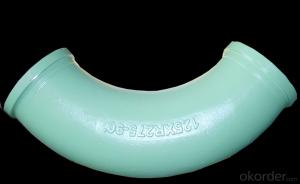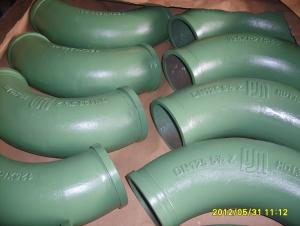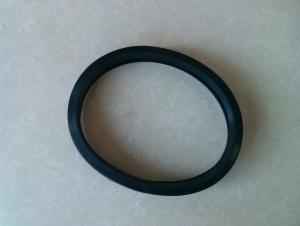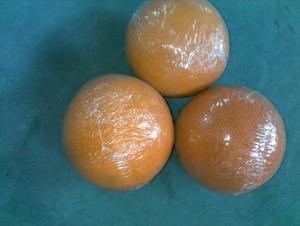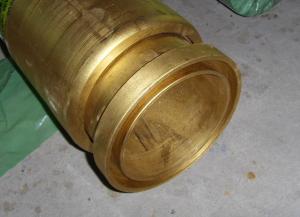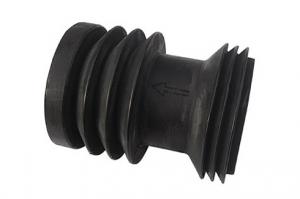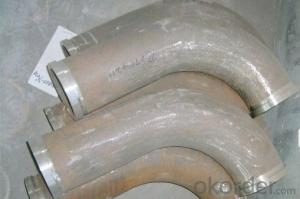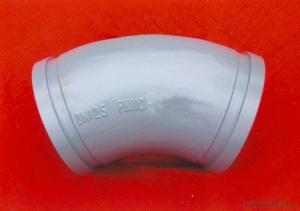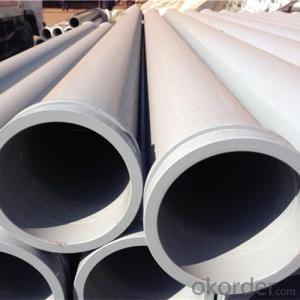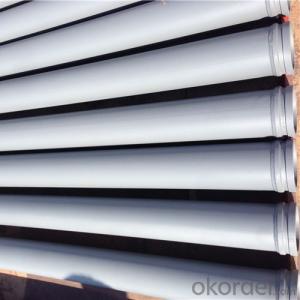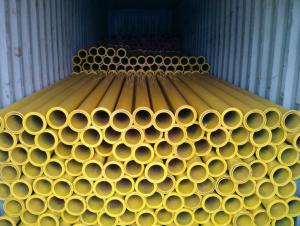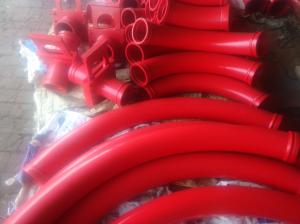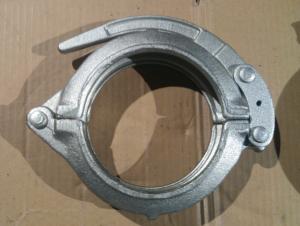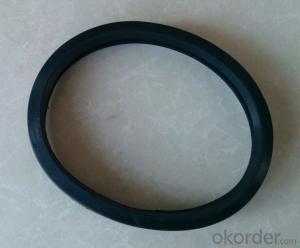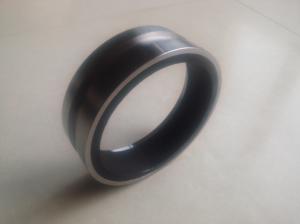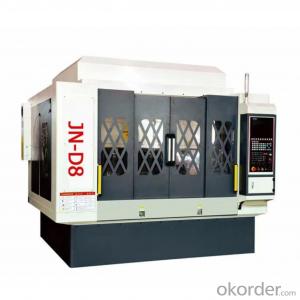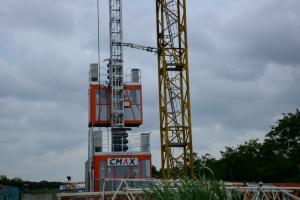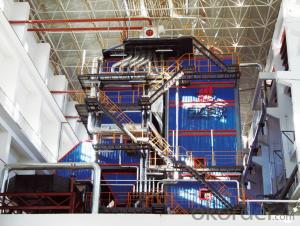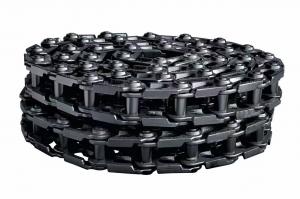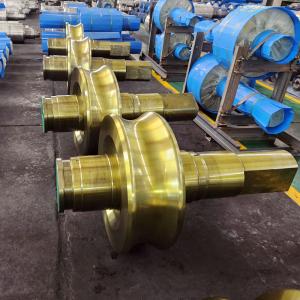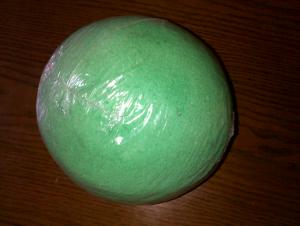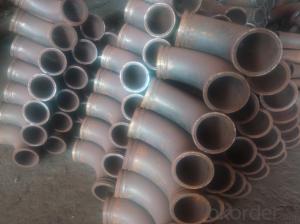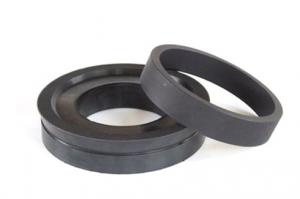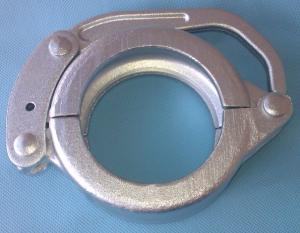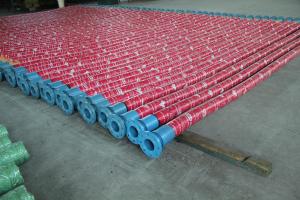Casting ELBOW R275, 90DGR for Putzmeister Pump
- Loading Port:
- Tianjin
- Payment Terms:
- TT or LC
- Min Order Qty:
- 10 pc
- Supply Capability:
- 1000 pc/month
OKorder Service Pledge
OKorder Financial Service
You Might Also Like
Product Name: Casting ELBOW R275, 90DGR
1. Specification
Dimensions: DN125MM
Radius: 275mm,1000mm
Flange: SK, ZX, F&M
Degree: 30°, 45°, 90°
Material: #20 steel, ST52, Mn 13-4
Thickness: 4.5mm,6mm,7.1mm,7.5mm,10mm,
Working pressure: 180MPa
Notes: total series of Casting ELBOW R275, 90DGR for different brand concrete pump(PUTZMEISTER, SCHWING, CIFA, SANY, ZOOMLION, IHI, KYOKUTO Etc) available from us.
2. Application of Concrete Pump Twin Wall ELBOW R275
Casting ELBOW R275, 90DGR widely used on concrete pump truck, concrete placing boom, trailer concrete pump etc, for concrete delivery pipe connection.
Our concrete pump bends have been successfully exported to many countries from 1998, Our main markets as below: Middle East, Southeast Asia, America, Brazil, Italy, Russia, South Africa etc
Aiming at the largest concrete pump parts manufacturer, and reliable, professional supplier in China, we can supply concrete pump elbows, delivery pipes, casting or forging couplings, end rubber hoses, rubber pistons, tungsten wear plates, delivery cylinders, and other hydraulic parts, one stop service for your concrete pump parts and accessory business.
3. Package and Delivery of Concrete Pump Twin Wall ELBOW R275
Every 60pcs Casting ELBOW R275, 90DGR put in one seaworthy wooden box, and 20 boxes in one 20feet container.
FAQ:
Q1: Why buy Materials & Equipment from OKorder.com?
A1: All products have its ISO certifications, adheres to the highest standards and a commitment to supply chain safety and customer satisfaction.
Q2: How do we guarantee the quality of our products?
A2: We have established an advanced quality management system which conducts strict quality tests at every step, from raw materials to the final product. At the same time, we provide extensive follow-up service assurances as required.
Q3: How soon can we receive the product after purchase?
A3: Within three days of placing an order, we will begin production. The specific shipping date is dependent upon international and government factors, but is typically 10 to 30 workdays.
Q4: If we can produce some Casting ELBOW R275, 90DGR according to customers request?
A4: Yes, we can produce Casting ELBOW R275, 90DGR according to the difference country situations and different concrete pump to make it suitable to the market and customers. We have very professional technical team to make the design.
Q5: How to make a quick resolution for after service?
A5:We have overseas branches all-around of world, IF needed, the seller shall dispatch 2 engineers to the buyer's site for supervision of training. The buyer shall make available of necessary facilities &skilled personnel at site for training.
Images:
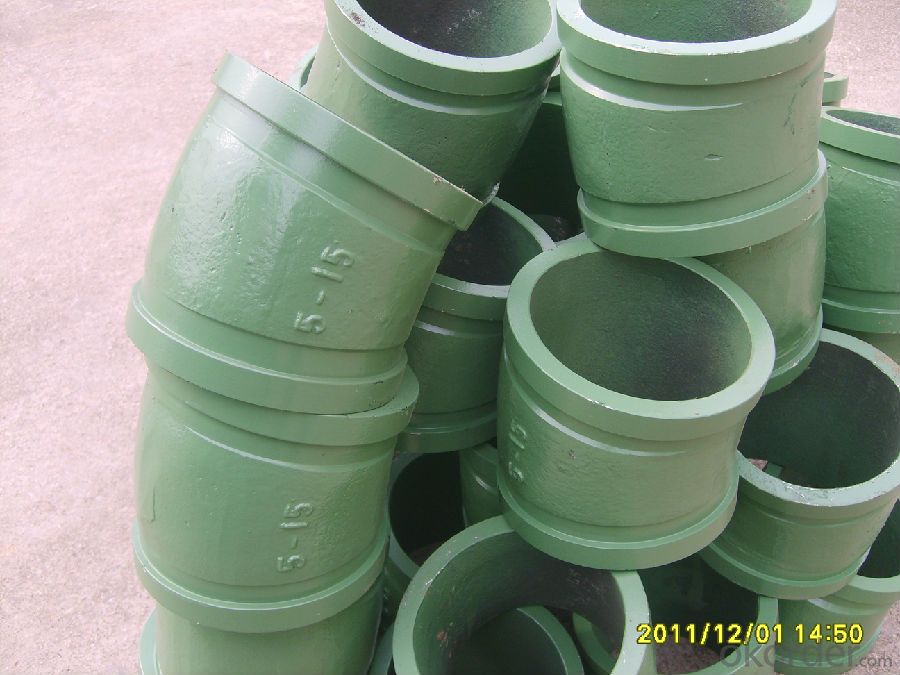
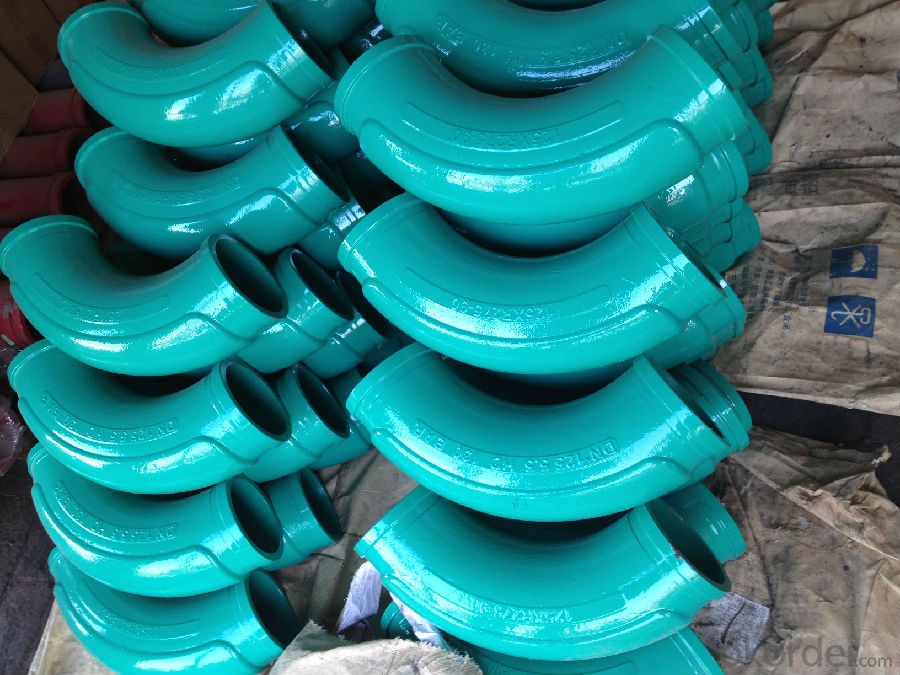
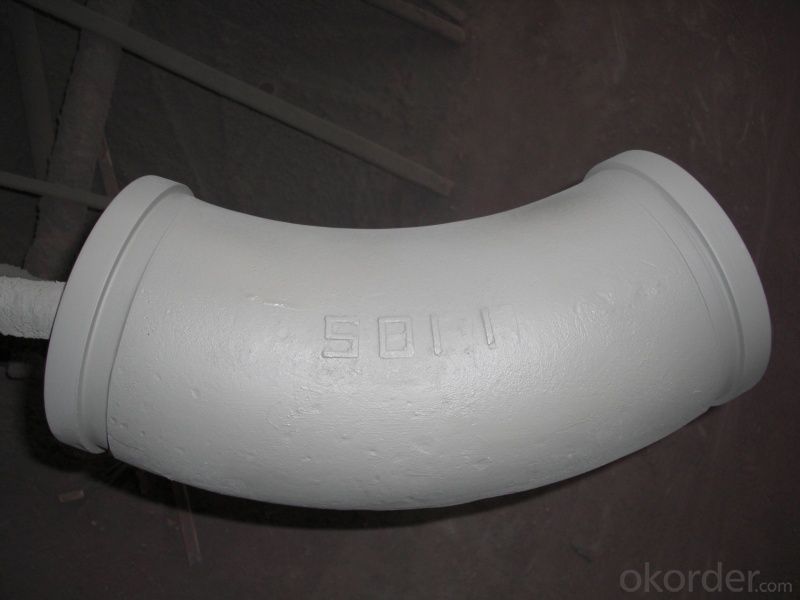
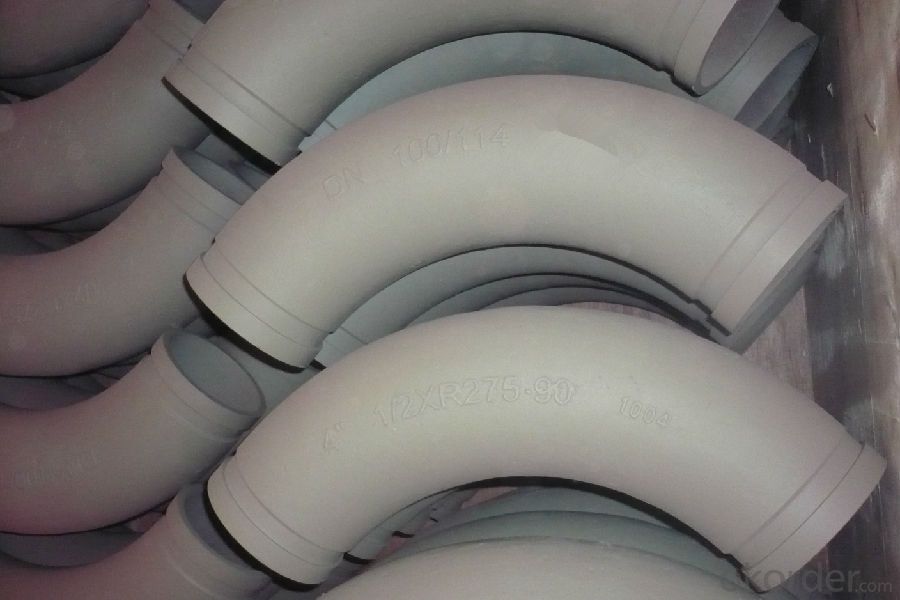
- Q:What are the different types of concrete pump hydraulic filters?
- Construction projects commonly utilize various types of concrete pump hydraulic filters. These filters are crucial for ensuring the hydraulic system's smooth operation and longevity. 1. Suction filters, located at the hydraulic pump's intake side, play a vital role in removing larger particles and debris from the hydraulic oil. They prevent contaminants from entering the pump and causing harm to its components. 2. Positioned on the return line, return line filters are designed to eliminate smaller particles and contaminants from the hydraulic oil before it is returned to the reservoir. By maintaining oil cleanliness, they prevent system wear and tear. 3. Pressure line filters, typically installed after the hydraulic pump on the high-pressure side, remove fine particles and contaminants from the oil. Their purpose is to guarantee the valves, cylinders, and other hydraulic components work smoothly. 4. In-tank filters are submerged in the hydraulic oil reservoir to filter the oil as it circulates through the tank. They effectively eliminate larger particles and contaminants settled at the bottom of the reservoir. 5. Magnetic filters attract and remove metallic particles, such as iron filings and metal shavings, from the hydraulic oil. They are highly effective in capturing ferrous contaminants. 6. Breather filters, installed on the breather vent of the hydraulic oil reservoir, maintain the cleanliness and integrity of the hydraulic oil by preventing dust, dirt, and moisture from entering the system. Regular inspection and replacement of these hydraulic filters are crucial for optimal performance and longevity of the concrete pump's hydraulic system. Neglecting this maintenance can lead to increased wear and tear, decreased efficiency, and potential damage to the pump and its components.
- Q:Can I get spare parts for both concrete pumps with and without agitators?
- Yes, you can get spare parts for both types of concrete pumps - those with agitators and those without. Many manufacturers and suppliers of concrete pumps offer a wide range of spare parts to ensure the smooth operation and maintenance of these machines. These spare parts include but are not limited to wear plates, cutting rings, delivery cylinders, pistons, seals, hoses, valves, and filters. It is recommended to contact the manufacturer or authorized dealers of the specific concrete pump brand you are using to inquire about the availability and pricing of spare parts for both types of pumps.
- Q:Are there any specific maintenance procedures for concrete pump spare parts?
- Yes, there are specific maintenance procedures for concrete pump spare parts. It is important to regularly inspect and clean the spare parts to remove any debris or blockages that may affect their performance. Additionally, lubrication should be applied to moving components to ensure smooth operation. Regular maintenance and timely replacement of worn-out or damaged parts is crucial to maximize the lifespan and efficiency of concrete pump spare parts.
- Q:What are the functions of concrete pump truck?
- Concrete pump truck is mainly used in building, bridge and tunnel construction. Currently mainly divided into gate valve, concrete pump and S valve concrete pump.
- Q:What is the second generation pumping technology of concrete pump?
- The whole hydraulic control technology delivery pump has no constant pressure pump, no PLC in the control box, no nitrogen gas storage tank and no close switch at the water tank. The structure is simple, and the maintenance cost is greatly reduced.
- Q:How long do rubber pistons typically last in a concrete pump?
- The durability of rubber pistons in a concrete pump can differ based on various factors, including the rubber quality, frequency of use, concrete type, and maintenance practices. On average, rubber pistons in a concrete pump typically endure for approximately 500 to 1,500 hours of operation. Nevertheless, certain top-notch rubber pistons have been reported to last even longer when given appropriate care and maintenance. To prolong the lifespan of rubber pistons in a concrete pump, it is essential to regularly inspect, lubricate, and replace worn-out components. It is worth noting that these estimations serve as general guidelines, and the actual lifespan may vary in specific instances.
- Q:What are the different types of concrete pump rubber hoses?
- In the market, you can find a variety of concrete pump rubber hoses. These hoses come in different types to cater to specific needs. The first type is the Steel Wire Reinforced Hose, which is the most commonly used. It is built with multiple layers of steel wire to provide maximum strength and durability. This type of hose is suitable for high-pressure applications and can handle the heavy pumping of concrete effortlessly. Another type is the Textile Reinforced Hose, which is reinforced with multiple layers of textile fabric like nylon or polyester. These hoses are lighter in weight compared to the steel wire reinforced ones, making them easier to handle and maneuver. They are suitable for medium-pressure applications and are commonly used in smaller concrete pumps. Then there is the Fabric Hose, which is made from a single layer of fabric like nylon or polyester. These hoses are lightweight and flexible, making them easy to handle and transport. Fabric hoses are suitable for low-pressure applications and are commonly used in small-scale construction projects. Composite Hoses are made from a combination of different materials such as rubber and plastic. These hoses are lightweight and highly flexible, which makes them ideal for applications where maneuverability is crucial. They are commonly used in smaller concrete pumps and can handle both low and medium pressure. Lastly, there are Flanged Hoses, which have flanges attached at both ends. These flanges are used to connect the hose to the pump and the nozzle, providing a secure connection and preventing any leaks or disconnections during the pumping process. Flanged hoses are commonly used in high-pressure applications and are suitable for large-scale construction projects. In conclusion, the choice of concrete pump rubber hose depends on specific project requirements. Factors such as pressure, size, and type of concrete being pumped should be considered to ensure efficient and safe concrete pumping operations.
- Q:How can one determine the correct hardness and durometer rating for rubber components in concrete pump spare parts?
- To determine the correct hardness and durometer rating for rubber components in concrete pump spare parts, several factors need to be considered. Firstly, the specific application and operating conditions should be examined, including the type of concrete being pumped, the pressure and temperature involved, and any abrasive or corrosive elements present. Secondly, it is crucial to consult the manufacturer's recommendations and industry standards for rubber components in concrete pumping equipment. These guidelines will provide insight into the recommended hardness and durometer rating range that ensures optimal performance, durability, and resistance to wear and tear. Additionally, conducting thorough testing and analysis, such as hardness testing and impact resistance tests, can help in determining the appropriate hardness and durometer rating for the rubber components. Overall, a combination of industry standards, manufacturer recommendations, and diligent testing is necessary to determine the correct hardness and durometer rating for rubber components in concrete pump spare parts.
- Q:Can concrete pump spare parts be inspected for dimensional accuracy before installation?
- Yes, concrete pump spare parts can be inspected for dimensional accuracy before installation. By conducting a thorough inspection, one can ensure that the spare parts meet the required specifications and will fit properly into the pump system. This pre-installation inspection helps prevent any potential issues or damage during operation, ensuring the efficient and reliable functioning of the concrete pump.
- Q:How often should hydraulic accumulator bladders be inspected or replaced in a concrete pump?
- Hydraulic accumulator bladders in a concrete pump should be inspected regularly, ideally every 6-12 months, to ensure they are in good condition and functioning properly. However, the frequency of replacement depends on various factors such as the pump's usage, operating conditions, and manufacturer's recommendations. It is best to consult the concrete pump's manual or reach out to the manufacturer for specific guidance on when to replace the bladders.
1. Manufacturer Overview |
|
|---|---|
| Location | |
| Year Established | |
| Annual Output Value | |
| Main Markets | |
| Company Certifications | |
2. Manufacturer Certificates |
|
|---|---|
| a) Certification Name | |
| Range | |
| Reference | |
| Validity Period | |
3. Manufacturer Capability |
|
|---|---|
| a)Trade Capacity | |
| Nearest Port | |
| Export Percentage | |
| No.of Employees in Trade Department | |
| Language Spoken: | |
| b)Factory Information | |
| Factory Size: | |
| No. of Production Lines | |
| Contract Manufacturing | |
| Product Price Range | |
Send your message to us
Casting ELBOW R275, 90DGR for Putzmeister Pump
- Loading Port:
- Tianjin
- Payment Terms:
- TT or LC
- Min Order Qty:
- 10 pc
- Supply Capability:
- 1000 pc/month
OKorder Service Pledge
OKorder Financial Service
Similar products
New products
Hot products
Hot Searches
Related keywords
